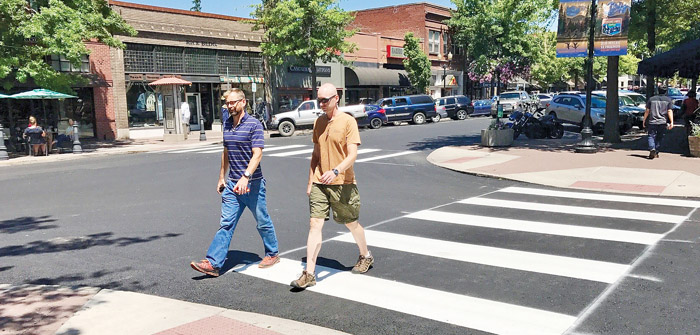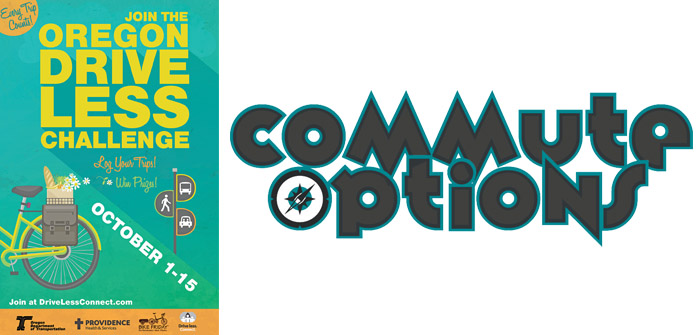Community colleges and universities help create a thriving, vibrant Central Oregon. They can also have a significant impact on the built environment, particularly when it comes to transportation. In the 2011-2012 school year alone, Central Oregon Community College enrolled 18,339 students and staffed 296 faculty members, not to mention the hundreds of additional employees. That’s a lot of people commuting to and from the campus every day!
Starting in January 2014, COCC will participate in the Commute Options Partner Program, available to all college employees. Through the Drive Less Connect website (www.drivelessconnect.com), employees can track all of their commutes to work that are not by single person vehicle. Walking, biking, carpooling, teleworking, taking the bus and working a compressed workweek are all eligible methods and after 45 round trips, participants receive a $20 gift certificate from a local business.
Kim Curley, Community Outreach Coordinator for Commute Options says, “COCC clearly appreciates the need and usefulness of Commute Options programs at the college. We are very happy to have them on board as a Partner.” Commute Options is pleased to also announce the addition of Columbia Gorge Community College to the Partner Program, starting this fall.
With the recent announcement that Oregon State University purchased a 56-acre land parcel in southwest Bend for their four-year university, Commute Options hopes that transportation options will be a priority for the new campus. “This will put some stress on our current transportation infrastructure, and the hope is that OSU-Cascades will mitigate this stress as much as possible,” adds Jeff Monson, executive director for Commute Options.
Architect and Urban Designer David Bagnoli will be visiting Bend on October 17 to speak about how our new university will impact, among other things, transportation in Central Oregon. “A key question for OSU will be—is it going to a be a largely commuter campus or a residential campus? The housing question needs to be addressed early on and this will determine what the campus should be looking at for transportation such as public transit, bike share and car share programs.”
Hopefully OSU Cascades will follow the lead of the main OSU campus in Corvallis, which utilizes a strong transportation program that encourages students and staff to walk, ride their bike or take public transit. Among other services, the university provides ride matching, free public transit passes for students and staff, access to a pedicab service, free campus shuttle, telecommuting options, secure bicycle parking and preferential parking for vanpools.
Commute Options intends to work closely with OSU and other partners to determine what types of transportation programs are appropriate for the campus. With a little foresight and good planning, everyone can benefit from a campus that supports active transportation choices.
Commute Options promotes choices that reduce the impacts of driving alone. For more information, contact Executive Director, Jeff Monson at 541-330-2647 or visit www.commuteoptions.org.
Katy Bryce is a freelance writer in Bend. www.katybryce.com.
David Bagnoli, an expert on smart growth at colleges and universities will speak in Bend on October 17 at two events:
City Club of Central Oregon
11:30-1:00pm • St. Charles Health Center.
Register online at: www.cityclubofcentraloregon.com.
Building a Better Bend
6:30pm • Central Oregon Association of Realtors, 2112 NE Fourth St., Bend. www.buildingabetterbend.org.




